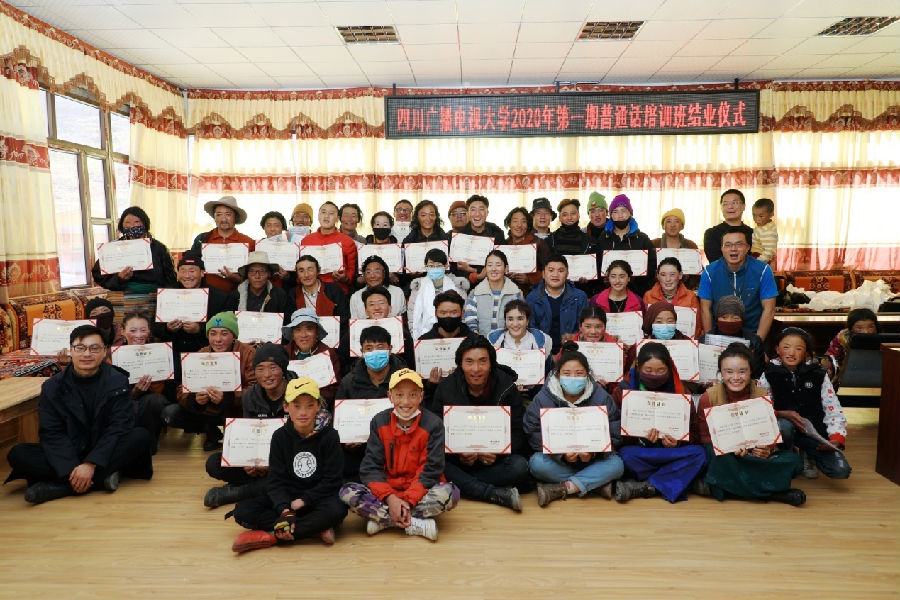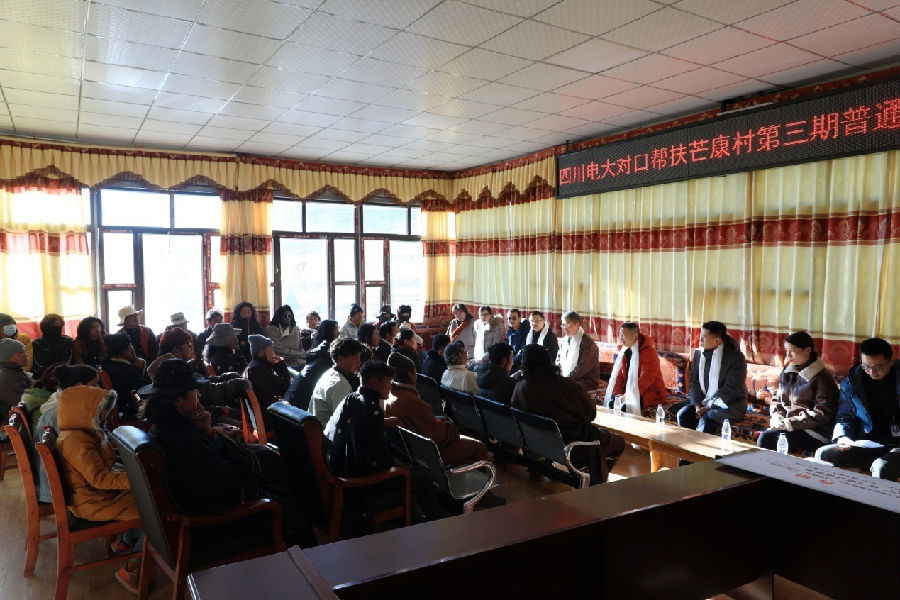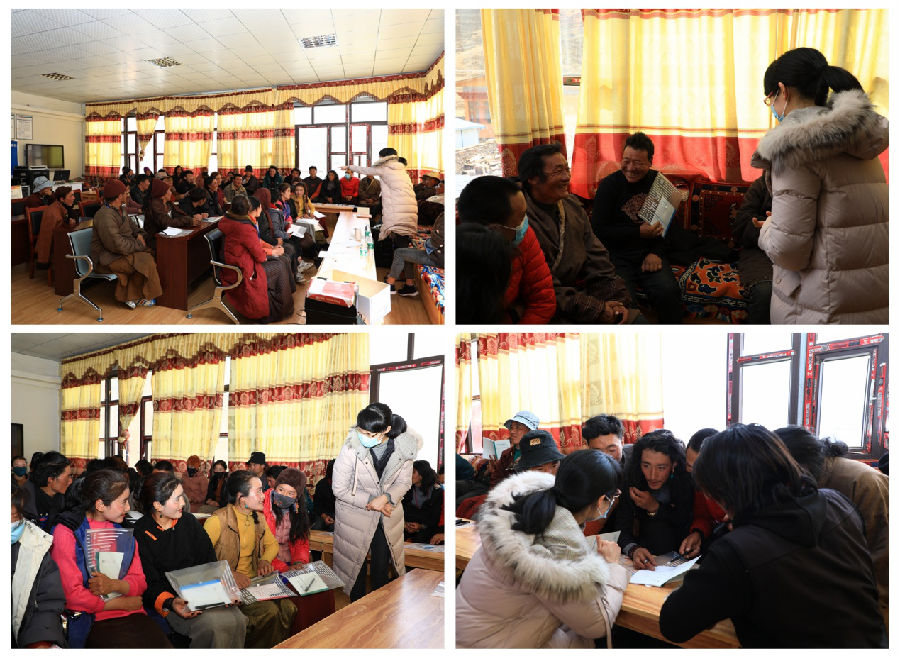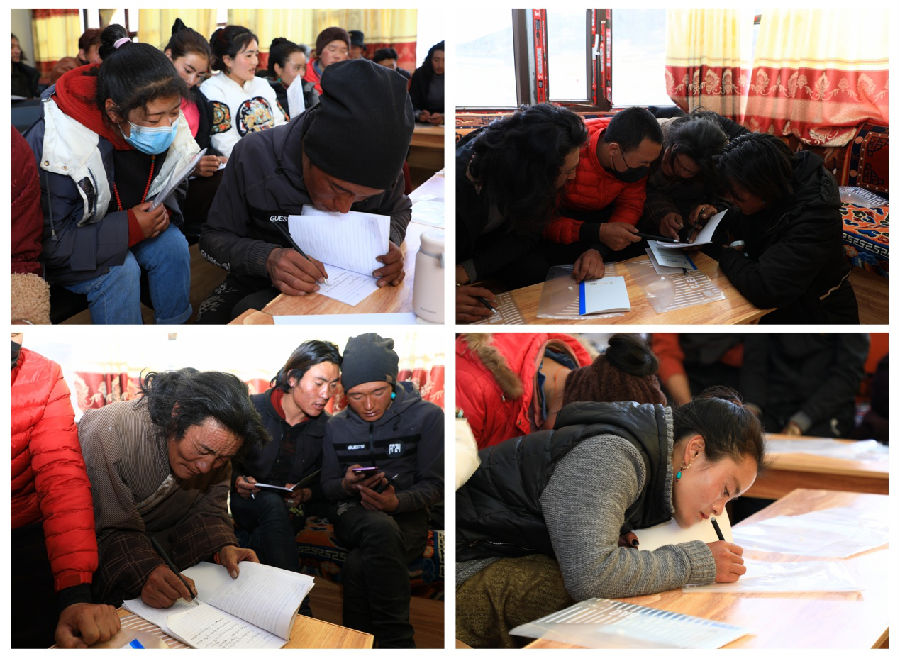 For Dangzhen Nima, a villager from Mangkang Village in Sichuan’s Ganzi-Tibetan Autonomous Prefecture, learning Mandarin as part of poverty-alleviation efforts in the village was so important that he called the work group stationed there to apologise that he could not attend the third training session.
For Dangzhen Nima, a villager from Mangkang Village in Sichuan’s Ganzi-Tibetan Autonomous Prefecture, learning Mandarin as part of poverty-alleviation efforts in the village was so important that he called the work group stationed there to apologise that he could not attend the third training session.
He was an excellent student in the first and second sessions. “The Mandarin training has helped me greatly with finding work away from my hometown. Now, as a migrant worker at Ningbo Tuopu Automobile Parts, I earn more than 5,000 yuan a month,” he told Mr. Tao during the call. He also sent photos of himself working in the factory.
Mangkang Village is located in the mountains of Litang County, where the herdsmen are generally not well educated; their poor language ability keeps them from finding better work elsewhere. This is why the Sichuan Branch, responsible for poverty-alleviation there, was advised to give priority to Mandarin training. Having been launched when the risks of Covid-19 had fallen, three one-week sessions have so far been offered, reaching a total of 150 students.

The first Mandarin class
The university leadership is active in targeting poverty alleviation
Education, communications, and even survival are built on a common language. The Sichuan Branch has made use of its advantages in terms of planning and programming, as well as its many skilled teachers, to initiate training in Mangkang Village. Aside from the training itself, it has posted information in the village, offered rewards to the best students, and used WeChat to teach the villagers one sentence of Mandarin every day at their convenience. The branch also offers regular face-to-face tutoring, and arranges for the more proficient younger students to help their elders, all with the ultimate aim of poverty-alleviation and rural revitalisation.
At the opening ceremony of the third session, Tan Wenjin, secretary of the Sichuan Branch Party Committee, encouraged the villagers to keep learning Mandarin in order to gain a better understanding of and strengthen communications with the outside world, and to work hard to better their lives.

Tan Wenjin speaking at the opening ceremony of the third session
The teachers overcome altitude sickness and carefully plan their classes
Before each session, its teachers communicate with the work group to learn about the basic situation of the villagers as a basis for designing their teaching plans. The classes have been packed, and although most of the students are new learners, they listen to the teachers carefully, interact with them, are attentive to pronunciation, and take all opportunities to put what they learn to use.
The sessions consist of eight themes: festivals, ethnic groups, weather, seeing the doctor, restaurant dining, township affairs, hotel check-in, and emotions. The teachers, while combating altitude sickness, use humour and games to set up a relaxed and pleasant classroom environment in which the students are actively engaged in communication and are able to satisfy their great desire to learn.

Teachers in class
The students learn Mandarin well and use it to make friends
According to Lu Bo, secretary of Mangkang Village Party Branch, the sessions have helped all the villagers improve their Mandarin proficiency, and made them thankful to the Sichuan Branch and enthusiastic about learning more. He also expects to see benefits to the village economy.

Students taking notes
Tao Jun, a member of the Sichuan-branch work group, said that all the villagers have mastered the basic pronunciation of Putonghua. He hopes they understand the importance of this training and will make good use of it at work and in other aspects of their lives, becoming more confident, and more friendly with the work group.
By Sichuan Branch